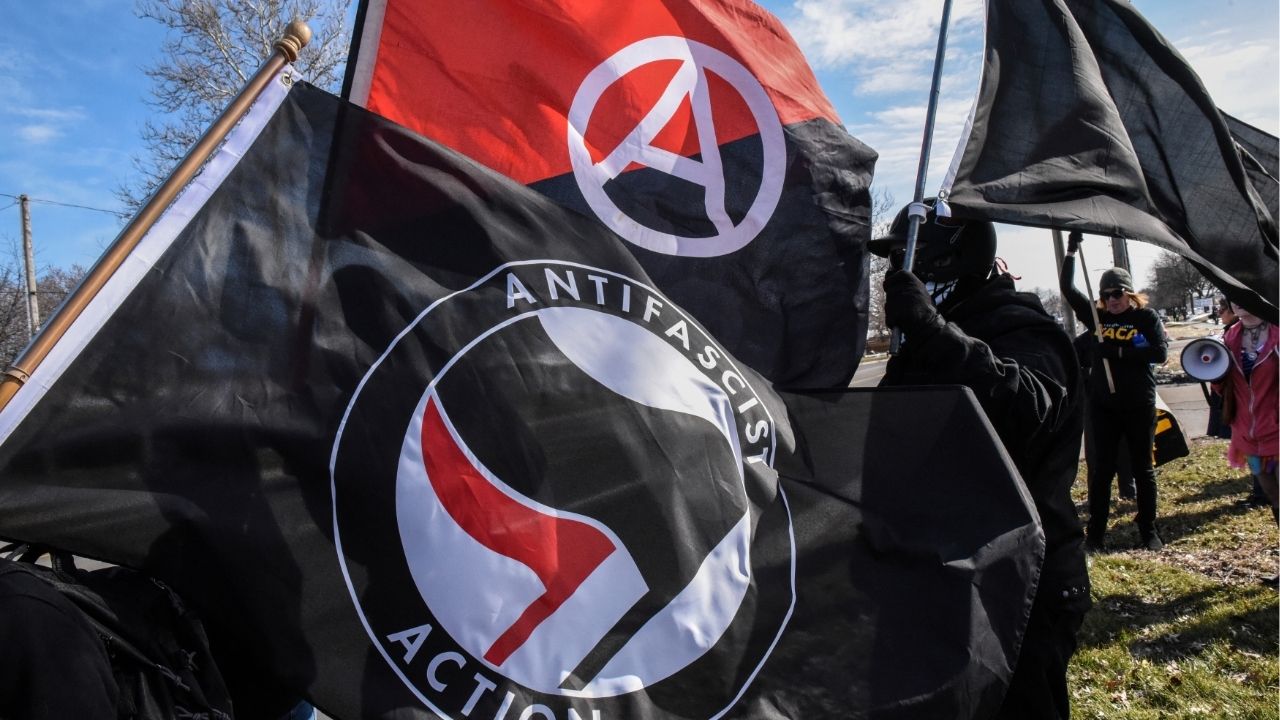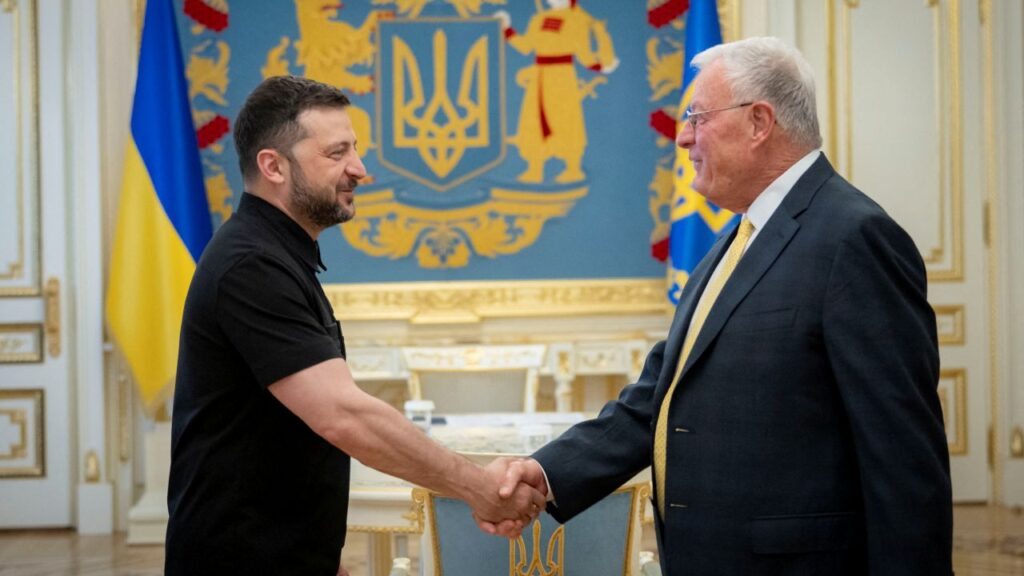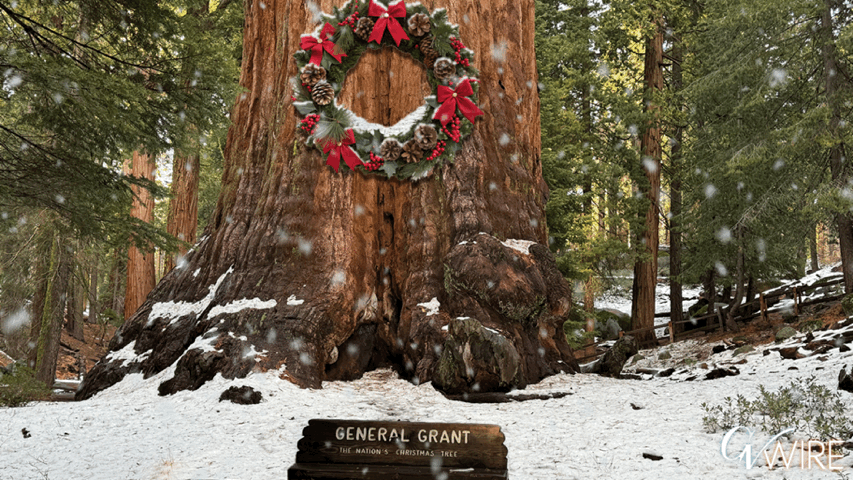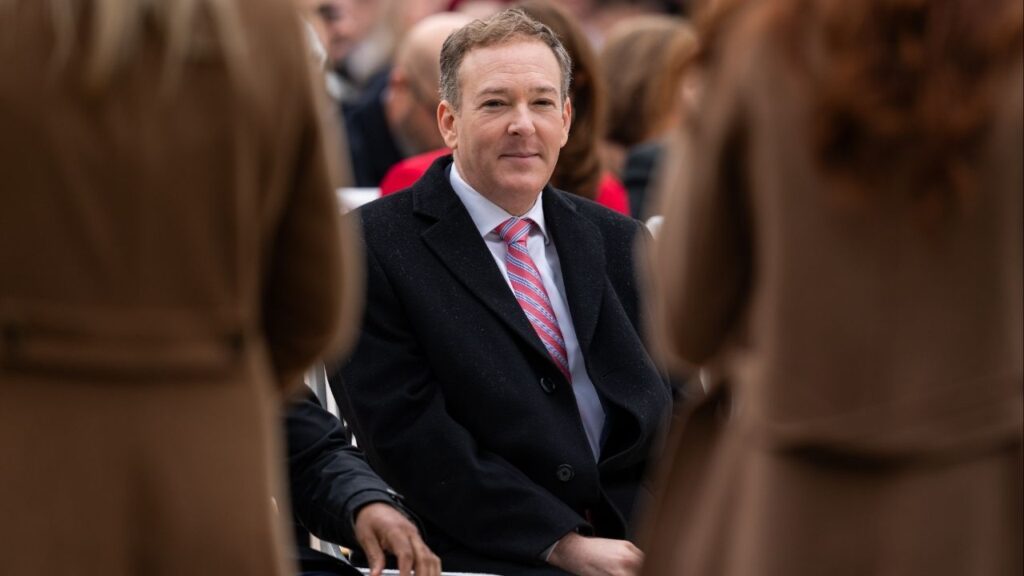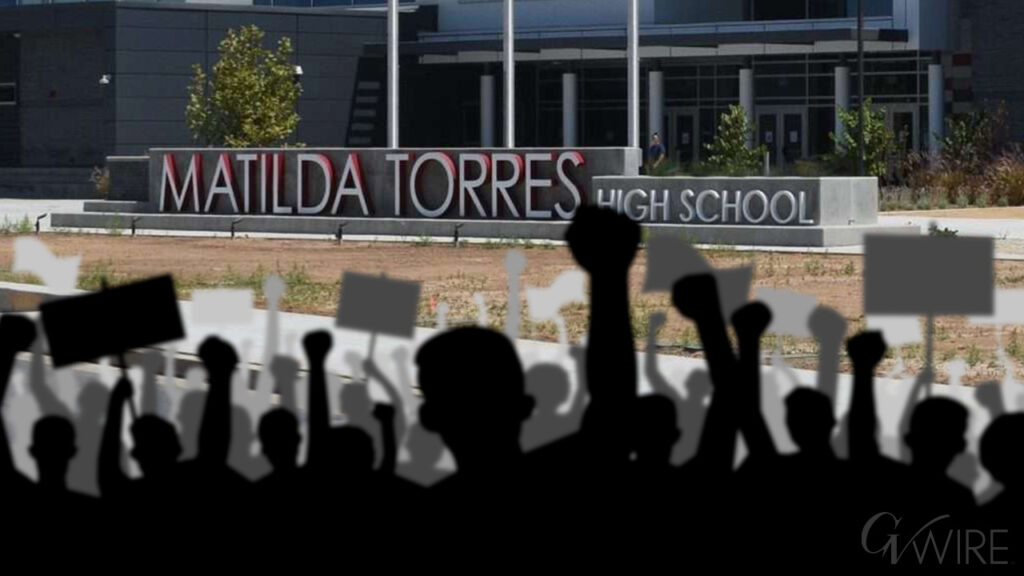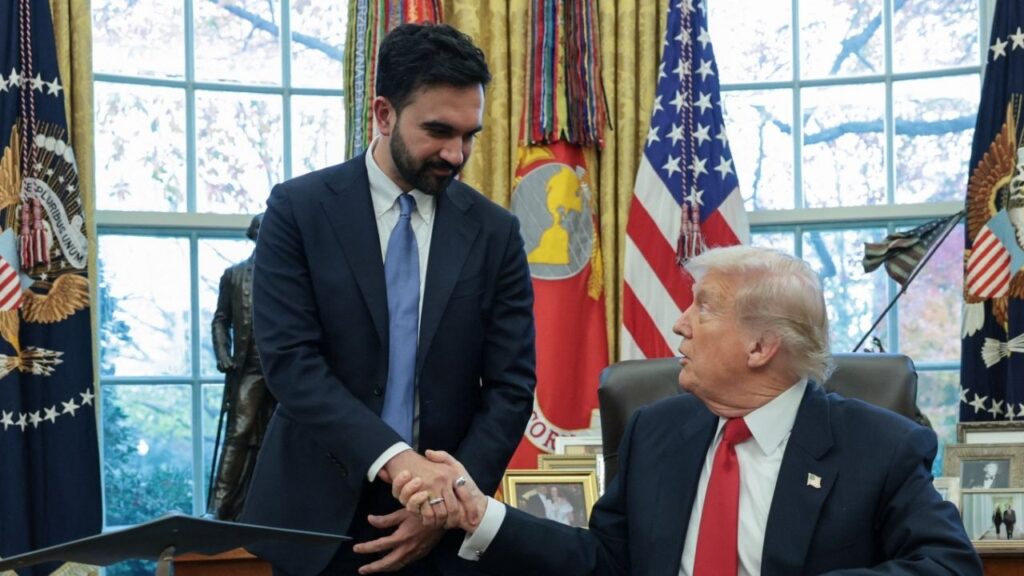Members of the Great Lakes anti-fascist organization (Antifa) fly flags during a protest against the Alt-right outside a hotel in Warren, Michigan, U.S., March 4, 2018. (Reuters File)

- Trump will host a White House roundtable on antifa Wednesday, reviving efforts to target the decentralized left-wing movement.
- Antifa, a loose anti-fascist ideology without formal leadership, has no official terror designation under U.S. law.
- Legal experts warn Trump’s plan faces major constitutional hurdles, since ideology alone is protected free speech.
Share
|
Getting your Trinity Audio player ready...
|
WASHINGTON — President Donald Trump plans to attend a White House roundtable on Wednesday to discuss the anti-fascist antifa movement, which he has called a domestic “terrorist organization” sponsoring left-wing political violence.
Here is some background on antifa, and why it might be difficult for the Trump administration to follow through on its threats to crack down on the movement’s sympathizers.
Why Is Trump Doing This Now?
Trump vowed to take action against left-wing groups he accuses of fomenting violence after the murder of conservative activist Charlie Kirk in September.
There is no public evidence tying antifa to Kirk’s assassination. The motive of the accused gunman, Tyler Robinson, remains under investigation.
Still, Trump has described antifa as a “sick, dangerous, radical left disaster” and has vowed to go after its sources of funding.
What Is Antifa Exactly?
Antifa (short for “anti-fascist”) is not an organized political group in the traditional sense. It is a decentralized movement without a clear structure, command hierarchy or leader, according to a 2020 Congressional Research Service report.
Some experts on political extremism, along with former FBI director Christopher Wray, have argued that antifa is better viewed as an anti-fascist, anti-white supremacy ideology than a cohesive entity. As such its adherents would enjoy First Amendment free speech protection under the U.S. Constitution.
What are the Origins of the Movement?
Antifa traces its roots to the anti-fascist movements in Europe in the early part of the 20th century. It gained further visibility within the United States after Trump’s election in 2016.
How Is the Movement Structured?
The movement operates as a loose collection of local groups that are independent of one another, but might share plans, tactics and resources either in person or through encrypted messaging apps.
Antifa activists cluster into “affinity groups,” informal units of three to eight people who trust and protect each other during protests, according to Reuters reporting and a 2020 report by the Center for Strategic and International Studies.
How Does the Movement Operate?
Adherents to antifa believe in “direct action,” which can take the form of street protests or cross the line into more violent conduct such as burning police cars or shattering windows. Activists often wear black and cover their faces, according to the CSIS report.
Online, they might track right-wing groups or dox those they view to be right-wing extremists.
Has Antifa Been Implicated in Violent Incidents?
According to U.S. law enforcement, there has never been a terrorist incident in the United States connected to antifa. Trump first sought to designate the movement as a domestic terror organization during the George Floyd protests in 2020.
The most notorious episode involving the movement occurred in Portland, Oregon, in August 2020, when Michael Reinoehl, a self-identified antifa supporter, shot and killed Aaron “Jay” Danielson, a member of the far-right group Patriot Prayer. Reinoehl was killed by federal and local law enforcement officers during an attempt to arrest him.
More recently, a San Diego jury found two men guilty of conspiracy to riot earlier this year in a case that stemmed from street protests in 2021. Prosecutors labeled the men as members of antifa.
Is Trump’s Order Legal?
The U.S. government does not currently officially designate solely domestic groups as terrorist organizations in large part because of constitutional protections.
But a Justice Department official said Trump’s order would unlock expansive investigative and surveillance authorities and powers.
The government is focusing on foreign money seeding U.S. politics and drawing connections to foreign bank accounts, a White House source familiar with the plans told Reuters.
Legal experts have said the domestic terrorism designation may be legally and constitutionally dubious, hard to execute and raise free-speech concerns, given that subscription to an ideology is not generally considered criminal under U.S. law.
—
(Reporting by James Oliphant; Additional reporting by Trevor Hunnicutt; Editing by Ross Colvin and Nia Williams)


